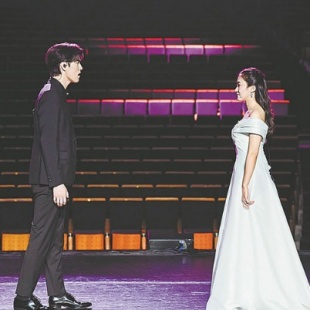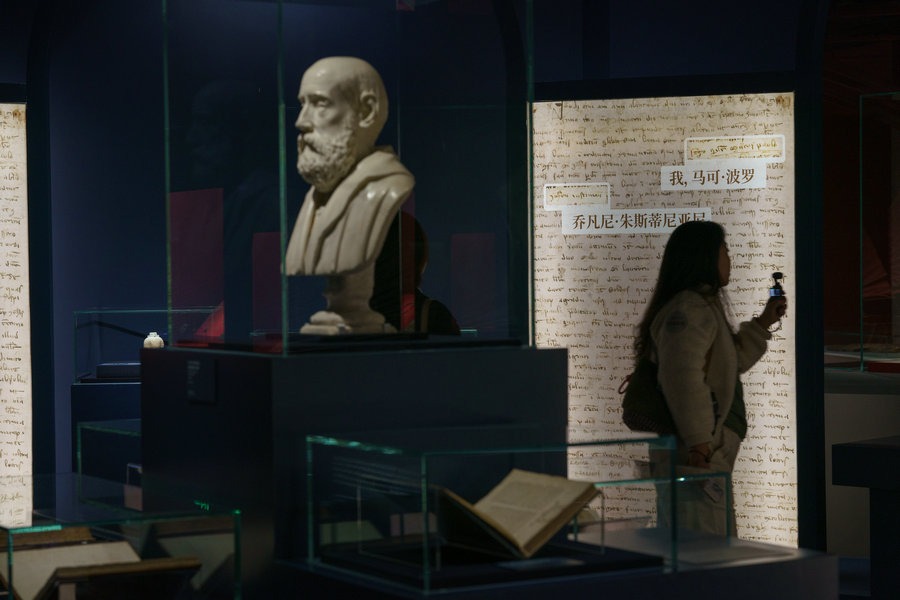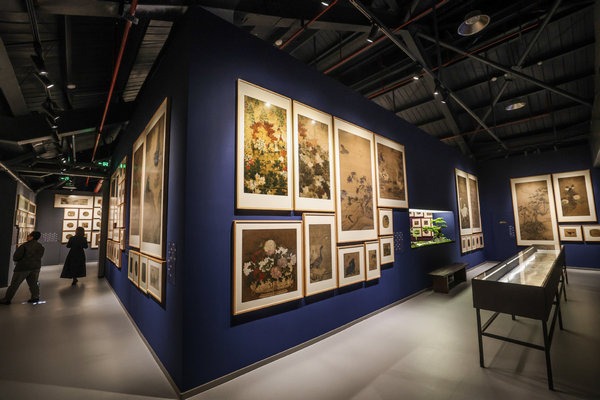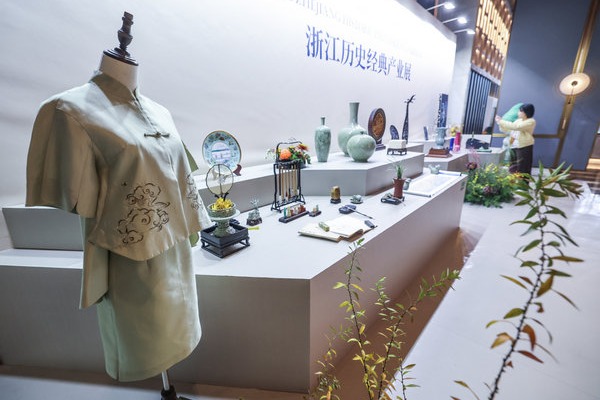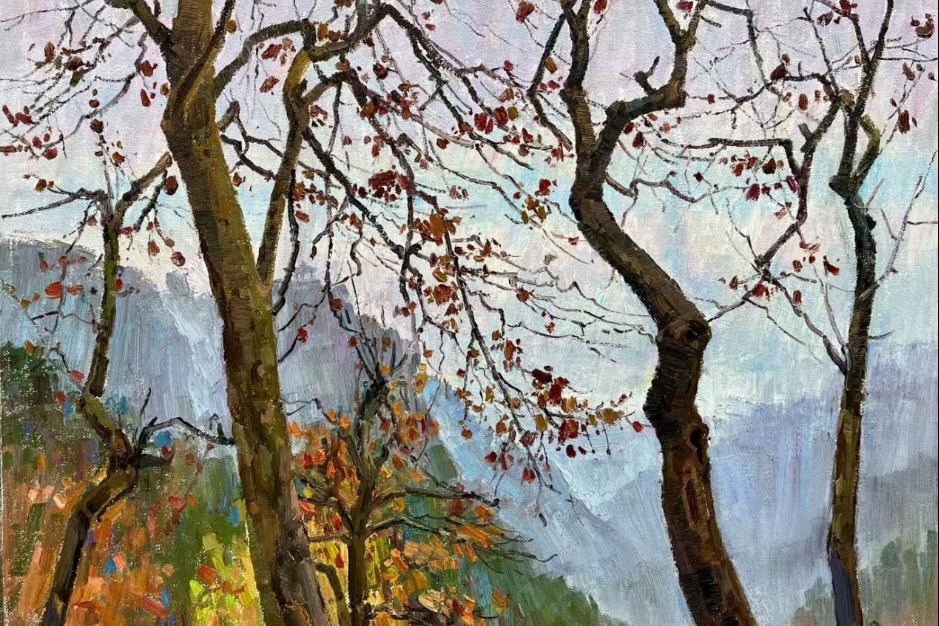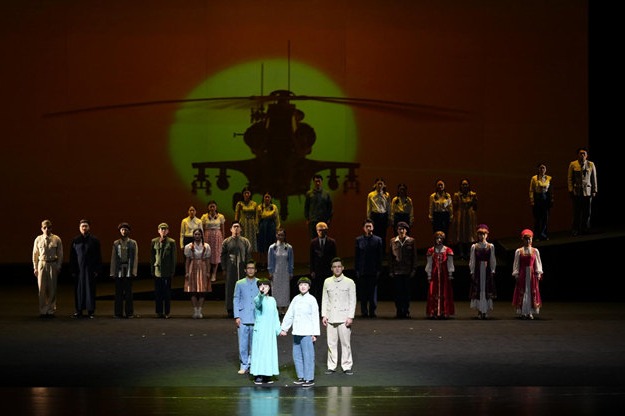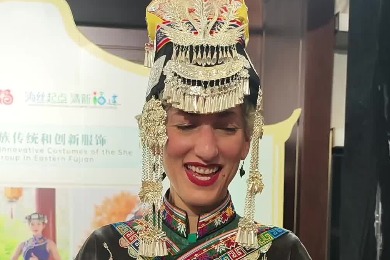Musical flies into concert destination

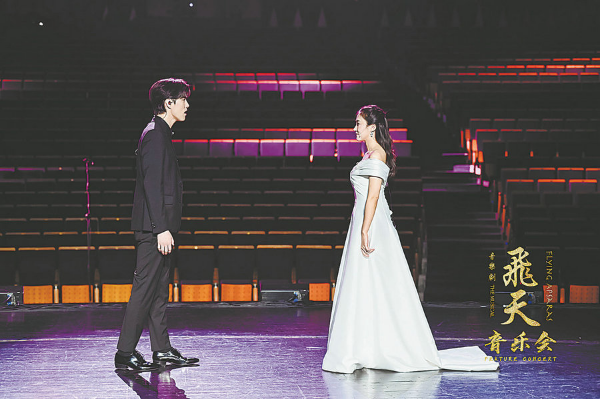
Several years ago, when musical producer Li Dun visited the Mogao Caves in Dunhuang, Gansu province of Northwest China, he had "an otherworldly experience".
"In one cave, a sudden sensation hit me. I felt moved and couldn't help crying. I told the others to leave the cave, and stayed there by myself for four and a half hours," Li recalls.
"There I had a dream, about the ancient civilizations of Egypt, Babylon, India and China, all united together. What brought these civilizations together? Love."
He says a "magical force" pulled him into the world of Dunhuang and led him to an inspiration to create a musical titled Flying Apsaras, which pays tribute to the generations of protectors who devoted themselves to preserving the Dunhuang frescoes.
The preparation took the production crew around four years, during which Li led the team members, including composer San Bao and playwright Guan Shan, on field trips to Dunhuang, but the project was suspended in 2020 due to the COVID-19 pandemic.
"Even though I'm not usually prone to sickness, I fell ill every time I returned from a field trip. It's probably because of my mental strain," Li says.
"Dunhuang has a powerful aura, and I felt a growing awe and sense of mission, and consequently an increasing pressure. But no good work can be produced without pressure."
In September, a live concert in Shanghai, with 14 songs from the musical, was given by leading musical theater performers, including Liu Yan, Xu Yao and Ayanga, and an ensemble choir of 60 singers.
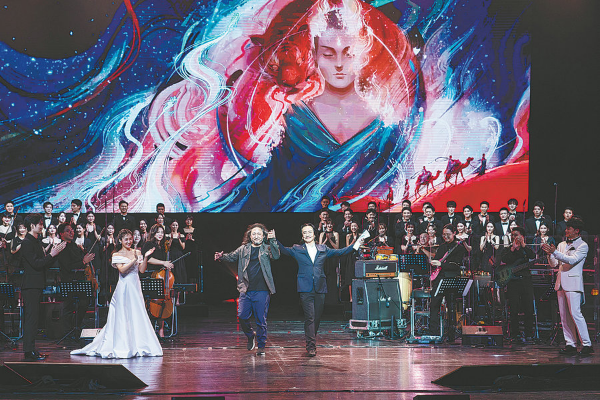
"Dunhuang is such a special place. Over thousands of years of history, many people from the West and the East have met, bringing about commercial and cultural exchanges there. Its culture is all-encompassing," San Bao says.
In the songs for the musical that were sung at the Shanghai concert, apart from using traditional Chinese music, Li integrated elements of music from the West and Central Asia, to represent the role of Dunhuang in cultural exchanges.
"Chinese traditional musical elements were a recurring ingredient in my past projects, but it was difficult to find musicians who could play folk instruments from the West and Central Asia, so in the concert version, I had to replace them with other instruments," he says.
"I really hope that for the musical, before it is finally staged, we can collaborate with musicians from these regions, so that the music becomes richer in timbre."
Li has dedicated himself to producing original Chinese musicals and his previous works include Legend of the White Snake, Butterflies and Reborn.
With the new musical, Li says he hopes to faithfully portray the splendors of Dunhuang.
"Telling the stories of China is my vocation. My life would be meaningful if I do this well," Li adds.
He says by making original musicals with an earnest attitude, he hopes they will become a common and popular way of entertainment for Chinese people.
"Musicals are not confined to a certain social class. It's a very down-to-earth art form. Everyone can enjoy the story regardless of their ticket prices. Musicals tell the stories of people and are able to resonate with the audience."
To facilitate those who cannot attend the concert, the team plans to release the songs online in the form of a digital album.
With a vision to integrate the new musical with tourism, Li says he wants the musical to be staged in Dunhuang for a long time. He is working on creating an area of culture and tourism in the city, where a theater, cultural and art education center, high street and hotel will be built.


